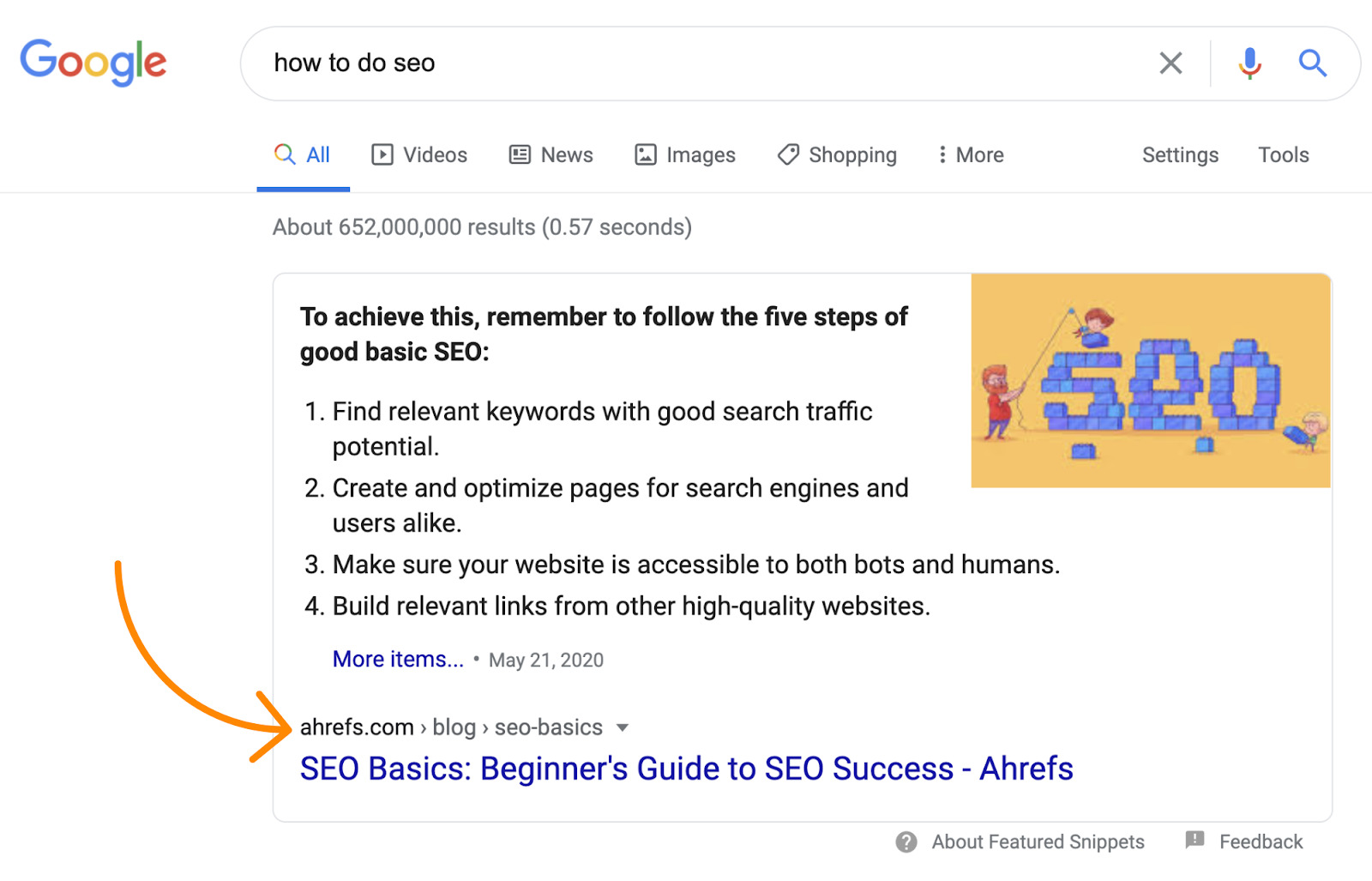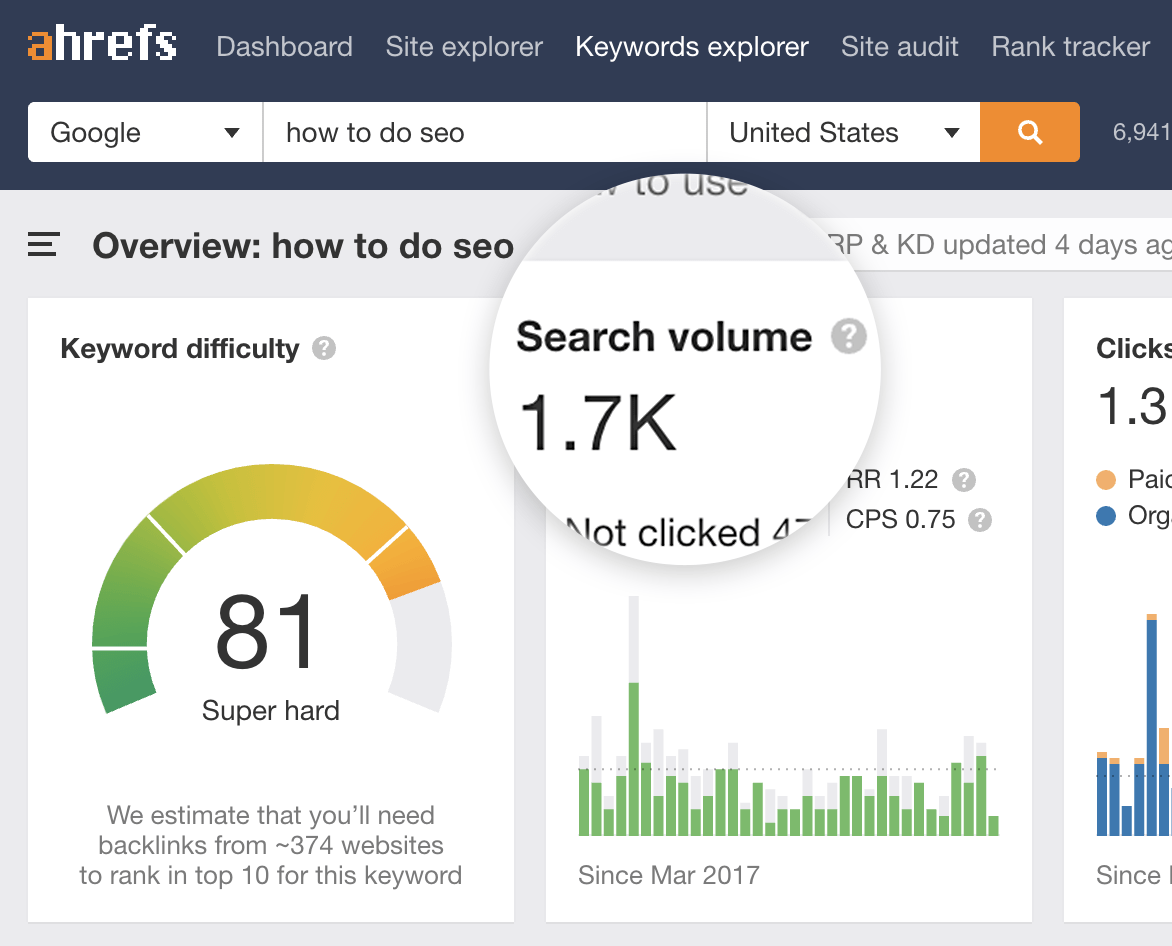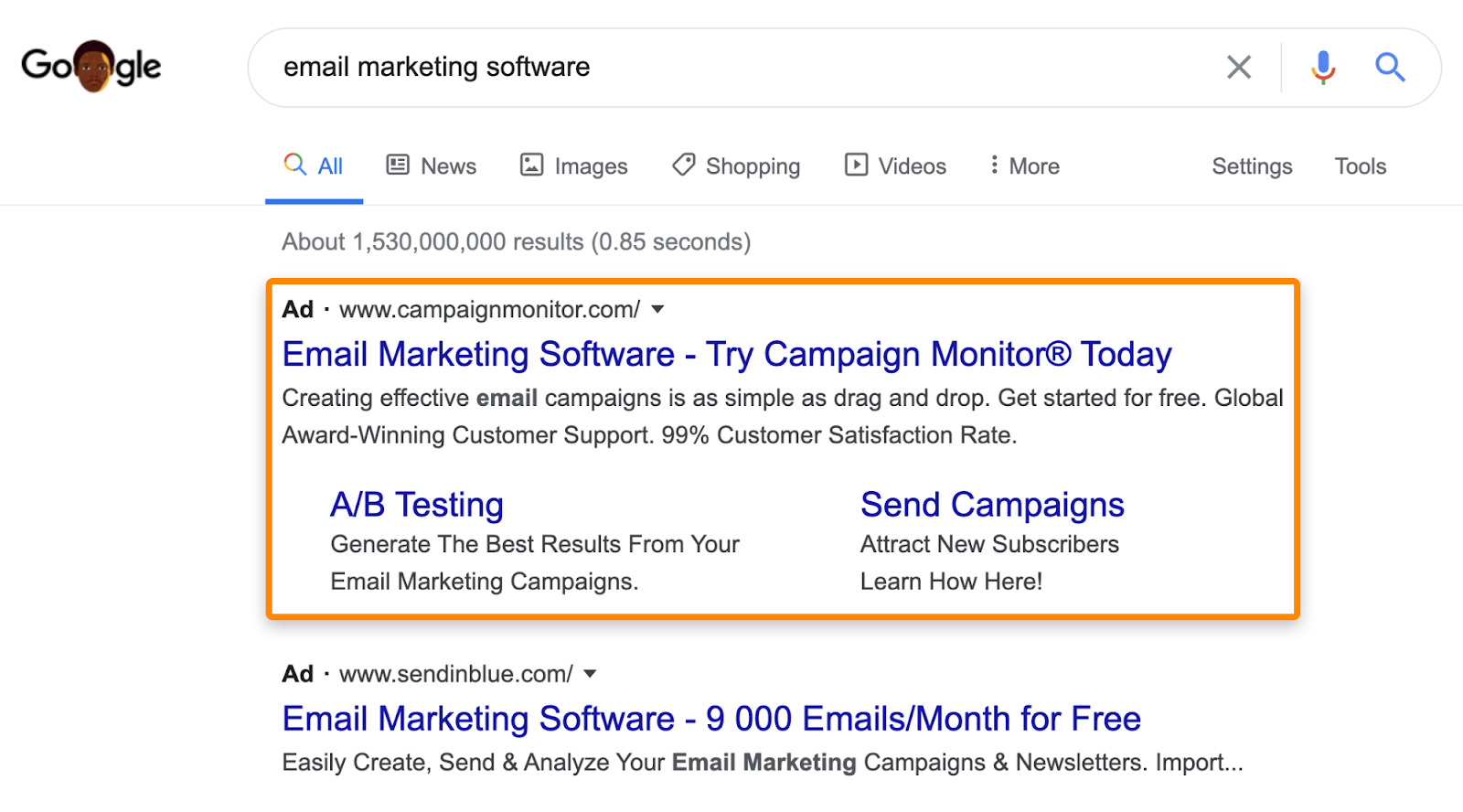Keywords are the words and phrases that people type into search engines to find what they’re looking for.
For example, if you were looking to buy a new jacket, you might type something like “mens leather jacket” into Google. Even though that phrase consists of more than one word, it’s still a keyword.
Of course, nobody outside of the SEO industry tends to use this terminology. Most people would call them Google searches or queries. Just know that keywords are synonymous with both of these things.
In this guide, you’ll learn:
- Why keywords are important
- How to show up in Google for keywords
- How to find keywords
- How to choose keywords
- How to optimize for keywords
- What long-tail keywords are
Why are keywords important?
Keywords are important because your website can show up when people type them into search engines.
For example, if you Google “how to do SEO,” we appear at the top:

Because this keyword gets an estimated 1,700 monthly searches in the US, showing up at the top of Google sends many visitors our way. In fact, we’ve had over 900 visits from this keyword in the last month.

How to appear in Google for keywords
Showing up at the top of Google for a relevant keyword might send lots of traffic your way, but how do you do that?
There are two ways.
Pay-per-click (PPC)
PPC is where you pay Google to show your web page in the results for specific keywords. For example, if you sell email marketing software, you could bid on that term and appear at the top of Google’s search results when people search for it.
That’s what Campaign Monitor does.

Search Engine Optimization (SEO)
SEO is the process of optimizing your web pages to rank in Google’s organic results. And Google’s job is to rank the best, most relevant results for every search query.
If Google deems your page the “best” result for the right terms, you’ll get a consistent stream of ‘free’ visits to your website.
For example, the Ahrefs blog gets an estimated 383,000 organic visits from Google every month.
Most people have some idea of the keywords they want to rank for in Google. But it’s impossible to know everything people search for. That’s why it pays to do some research to find more keyword ideas.
There are many ways to do this, but the easiest method is to use a keyword research tool.
Most of these tools work in the same way. You enter a few broad keywords related to your industry called seed keywords, and the tool kicks back some related keyword ideas.
Nobody can rank for every keyword, and nobody can bid on every keyword. For that reason, it’s important to choose your battles wisely. Let’s look at a few keyword metrics and attributes to help you choose the best ones.
Search volume
Keywords vary in popularity. For example, there are an estimated 35,000 monthly searches for “how to post on instagram.” But only 1,200 for “how to get backlinks.”
Most guides say that you need to do these kinds of things to optimize for keywords:
- Include the keyword in the title tag
- Include the keyword in the URL
- Mention your keyword throughout your page
- Include long-tail keywords in your copy
Although it does make sense to do many of those things, they’re not the primary way you optimize for a keyword.
The primary way to optimize for a keyword is to match search intent.
If you’ve read anything about keyword research before, you might have come across the term long-tail keywords. Most guides define these as keywords that consist of lots of words, but that’s not entirely accurate.
Long-tail keywords are search queries with low individual search volume. While it’s true that longer, more specific keywords tend to have lower search volumes, one and two-word phrases can be long-tail keywords.
In fact, there are over 350 million one and two-word phrases in our database with fewer than ten monthly searches.

Final thoughts
Keywords are the foundation of SEO. You can’t possibly create or optimize content for search engines unless you know what people are searching for and what they want to see.
Looking to learn more about keyword research? Read our complete keyword research guide.
Looking for some quick keyword research tips? Here are 6 of them.
Got questions? Ping me on Twitter.


